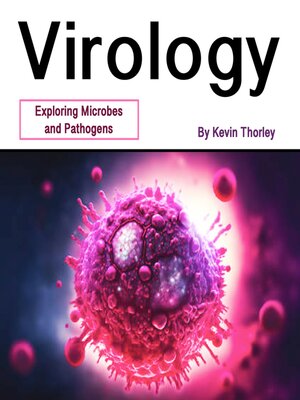
Sign up to save your library
With an OverDrive account, you can save your favorite libraries for at-a-glance information about availability. Find out more about OverDrive accounts.
Find this title in Libby, the library reading app by OverDrive.



Search for a digital library with this title
Title found at these libraries:
| Library Name | Distance |
|---|---|
| Loading... |
Virology is the scientific study of viruses, their structure, function, and impact on living organisms. Viruses are unique entities, existing at the boundary between life and non-life, requiring host cells to reproduce. This field covers the classification of viruses, their methods of replication, and the various ways they interact with hosts, often causing diseases. Understanding virology is crucial for studying infectious diseases like influenza, HIV, and COVID-19, as well as for developing antiviral therapies and vaccines. This chapter sets the foundation for exploring how viruses shape both health and the environment.
Definition and Scope of Virology
Virology is the branch of science that deals with the study of viruses and virus-like agents, including their structure, classification, genetics, and interaction with host organisms. As microscopic entities that straddle the line between living and non-living, viruses are unique. They are unable to carry out metabolic processes on their own, and must infect a host cell to replicate. This dependence on living organisms is what makes them distinct from other pathogens, such as bacteria and fungi. Despite their simple structure—typically comprising genetic material (DNA or RNA) encased in a protein coat—viruses have a profound impact on all forms of life, from humans to plants and animals.







